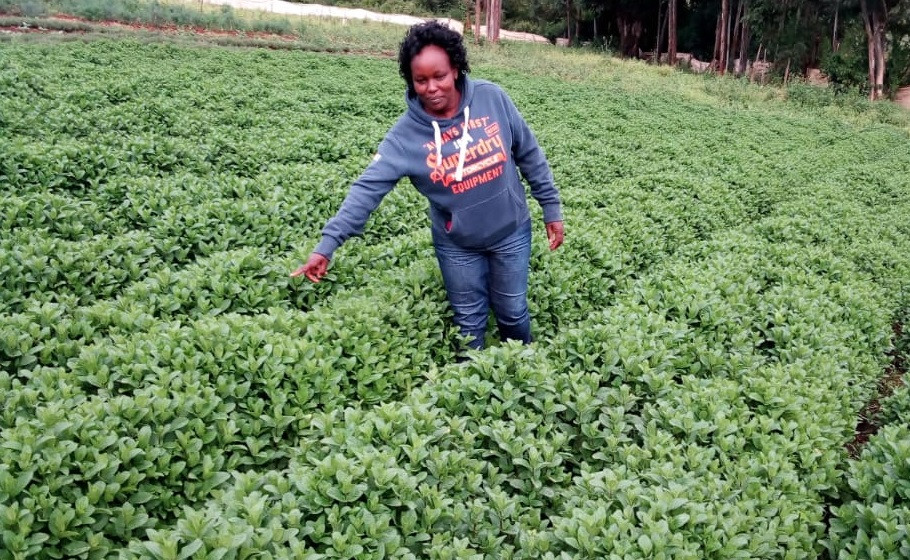While working as a teacher, I would not get tired of telling my learners that agriculture is the backbone of the country’s economy. That it is what is earning the country huge foreign exchange, but as I did this, I was struggling to make ends meet because what I was earning was comparatively little.
To make some extra cash, I started keeping cows in my compound, relying on my workers to take care of the animals as I taught. My herd grew steadily and I started getting tonnes of manure.
I used the manure to grow vegetables in particular spinach. That's how I found myself doing crop farming, as I also expanded to growing tree tomatoes on the farm in Nakuru.
This turned out to be a big learning process and agribusiness became so dear to me. As I learnt of new farming ventures, I looked for a farm that I would irrigate throughout the year and after scouting for weeks, I got a perfect place.
I planted some herbs including mint, thyme, rosemary and sage. That's how I found myself in herbs industry.
At the same time, I got a contract to grow summer flowers for an export company. At this time I was still a teacher, farming over the phone and I would visit the farm mid-week and at the weekend, which was a hustle.
So I did away with dairy farming to create time for the new ventures and eventually quit teaching to give agribusiness my undivided attention.
Currently, I grow tree tomatoes in Ngurika, Nyandarua County and the herbs - horticultural farming - in Rongai, Nakuru.
I have a supervisor who takes charge of all the activities on the farm, especially when I am not around.
In 2013, I enrolled for a Masters degree at Egerton University and its here that assignments and projects required me to get closer to the internet. To my surprise, I found great stuff on Google, YouTube, Facebook and great websites like Mkulima Young. I have picked plenty of knowledge online that I apply on the farm to grow my agribusiness.
Telephone farming did not work well for me, that is why I resigned to fully concentrate on farming. There are decisions that you can only make when you are hands on.
In agriculture, the time between getting information and decision-making is crucial. A late decision can have fatal effects on your business
Having trained in agriculture both at undergraduate and graduate levels has offered me great advantage in farming. At least I have more than the basics in agriculture. But I also attend seminars and pay for training that I feel are useful.
Last December, I enrolled for training in integrated pest management to help me take care of pests and diseases without relying on chemicals. I also consult fellow farmers a lot, especially my former student, Ruth Munyoro, who I taught agriculture in high school. She is very good in herbs and has been an asset to me.
My journey in farming has been smooth in horticulture unlike when I was doing dairy where fluctuation of milk prices was the order of the day.
One of the strategies I have learnt to make telephone farming work is to have a reliable manager who you can agree on how to share profits instead of paying him a salary. This way, the employee will strive to produce the best so that she can get good proceeds.
Farming is not easy, but I would say it is a worthwhile venture. You must be prepared to stumble at some point because it is fraught with risks but pick up the pieces and move on.
I sell my mint, thyme, tarragon, sage and rosemary herbs to an exporting company, which offers me ready market and make some good profit. My immediate plan is to construct greenhouses where I would farm chives and basil.
Agriculture is the future; it is a worthy venture. We have many learners in schools who might not benefit a lot from the formal curriculum, I would urge agriculture teachers to mentor these learners so that they can produce food for the country and earn a living.
Find Lucy’s contact here
You want to be a Mkulima Young Member like Lucy? Register here
Being a member enables you to sell and/or accessing contacts for buyers seeking products for FREE. Also soon you will get regional market trends and prices projection for various agricultural commodities.

